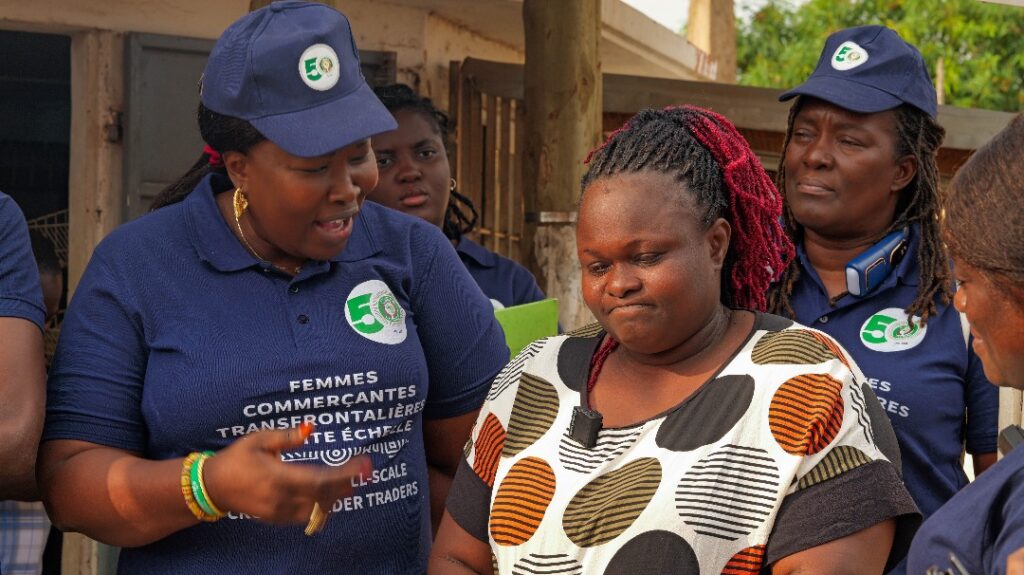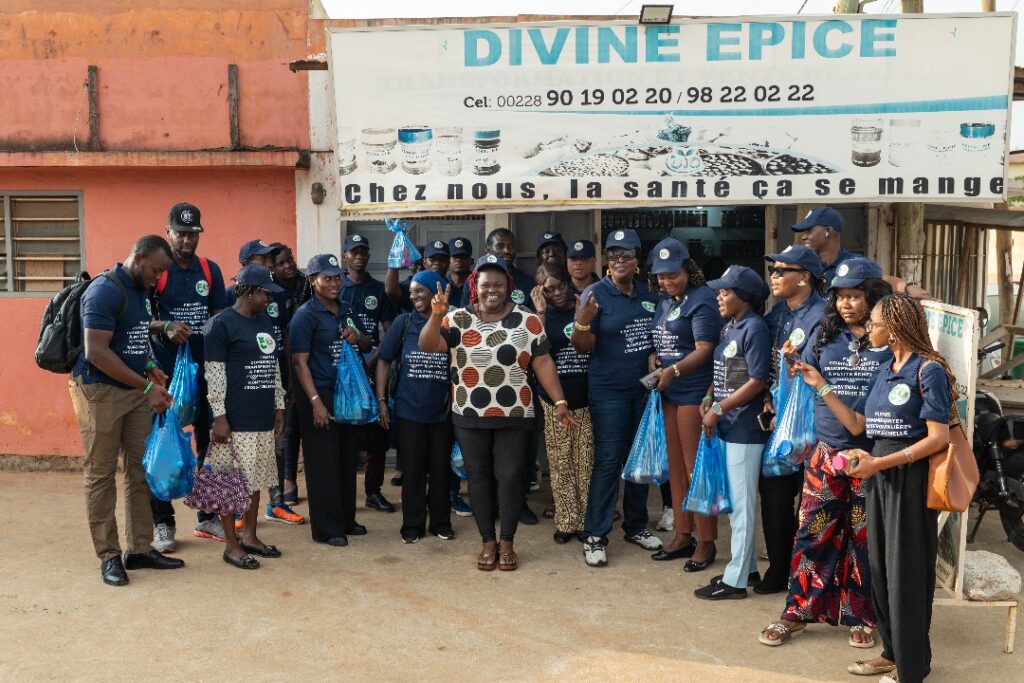Border Small Scale Traders: ECOWAS Launch Third Edition of Regional Trade Awareness Campaign, Focus on Agri-Food Trade, Gender Equity.
By Raymond Enoch
In a landmark move to strengthen grassroots economic resilience and regional integration, the ECOWAS Commission on July 4 officially launched the Lomé phase of its Third Edition of the Information and Awareness Campaign for Small Cross-Border Traders along the Abidjan–Lagos corridor.

Held in the heart of Lome capital of Togo, the ceremony marked a pivotal moment in West Africa’s ongoing efforts to empower small-scale traders—particularly women—through knowledge, training, and strategic regional partnerships. The event drew high-level dignitaries, including Her Excellency Professor Kossiwa ZINSOU-KLASSO, Minister for Social Action, Solidarity and the Advancement of Women, who praised the initiative as “a powerful catalyst for inclusive economic transformation and social cohesion.”
“Women traders are not just economic actors; they are pillars of our communities and engines of cross-border commerce,” Professor ZINSOU-KLASSO stated during her keynote address. “This campaign gives them the tools to thrive, grow, and trade with dignity across the region.”
This third installment of the awareness campaign, spearheaded by the ECOWAS Departments of Human Development and Social Affairs and Economic Affairs and Agriculture, follows the success of previous editions launched along the Tema-Paga (2023) and Dakar-Banjul-Bissau (2024) corridors.
Designed to demystify ECOWAS trade regulations and amplify awareness of regional frameworks, the campaign emphasizes the PRIMA programme (2021–2026)—a strategic initiative to facilitate the movement of agri-food products and enhance food security across member states.
In addition to trade protocols, the campaign integrates training modules on the International Trade Centre (ITC) toolkit, focusing on border transparency, customs procedures, and the prevention of gender-based violence—a critical issue faced disproportionately by women at informal trade posts.
The launch was attended by a cross-section of stakeholders, including officials from multiple Togolese ministries, ECOWAS institutions, the Togolese Chamber of Commerce, cross-border traders’ associations, and international development partners.
Participants engaged in technical sessions and panel discussions aimed at bridging the knowledge gap for informal traders—who often operate without full awareness of their rights under ECOWAS trade protocols.

A cross-border trader from Côte d’Ivoire who attended the event, shared her optimism: “For years, I’ve faced harassment and uncertainty at borders. Now I understand the laws that protect me and the procedures I must follow. This changes everything.”
The Abidjan–Lagos corridor—stretching through Côte d’Ivoire, Ghana, Togo, Benin, and Nigeria—represents one of West Africa’s most active trade arteries. By targeting small-scale traders, who account for a significant portion of regional commerce, ECOWAS hopes to formalize and facilitate smoother intra-regional trade, especially for women who make up the bulk of informal cross-border commerce.
The campaign forms part of a broader regional vision: a harmonized, inclusive, and secure trading environment that not only boosts economic output but also reinforces the ECOWAS identity of “people-centered integration.”
As the Lomé stage sets the tone for further outreach in the corridor, the ECOWAS Commission reaffirmed its commitment to sustained collaboration with national governments and civil society actors to ensure long-term impact.
“This is not just a campaign,” said a senior ECOWAS official. “It’s a movement—towards equity, empowerment, and economic integration at the most essential levels of our society.”
Launched in 2021, the PRIMA (Promoting Regional Integration through Market Access) programme aims to ease the movement of agricultural and food products across ECOWAS borders. The initiative focuses on trade facilitation, harmonized standards, and support to women-led agribusinesses, running through 2026.









